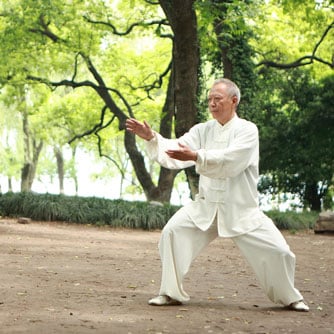Parkinson’s Disease (PD) is a brain disorder that causes tremors and difficulty with movement and walking, and most commonly affects people over the age of 50. A slow, meditative, physical practice, tai chi originated as a martial art but is emerging as a intervention for a variety of disorders that impact balance and stability. Fuzhong Li, from the Oregon Research Institute (Oregon, USA), and colleagues studied a group of 130 Parkinson’s patients, median age 69 years, who were evenly randomized to a tai chi training intervention or a stretching exercise control group, which each met twice a week for 24 weeks. Measures of stability and sensory organization were taken at baseline and at 3 months and 6 months. The team found that the subjects who practiced tai chi scored better on these outcomes, as compared to controls. As well, modest gains were observed in lower-body strength among the participants in the tai chi training. Observing that that retention of participants in the tai chi intervention was high — roughly 85% — the intervention was effective at improving outcomes at low cost, requiring no equipment and with minimal supervision.
Tai Chi Assists Balance in Parkinson’s
Li F, et al. "Tai chi and limits of stability in patients with Parkinson's disease" [Abstract P04.031]. Presentation at American Academy of Neurology 2013 Annual Meeting, 21 March 2013.




